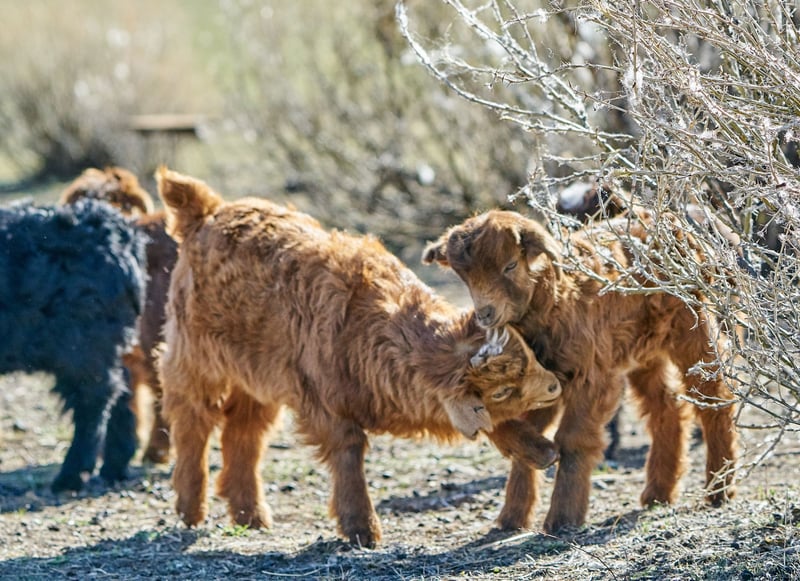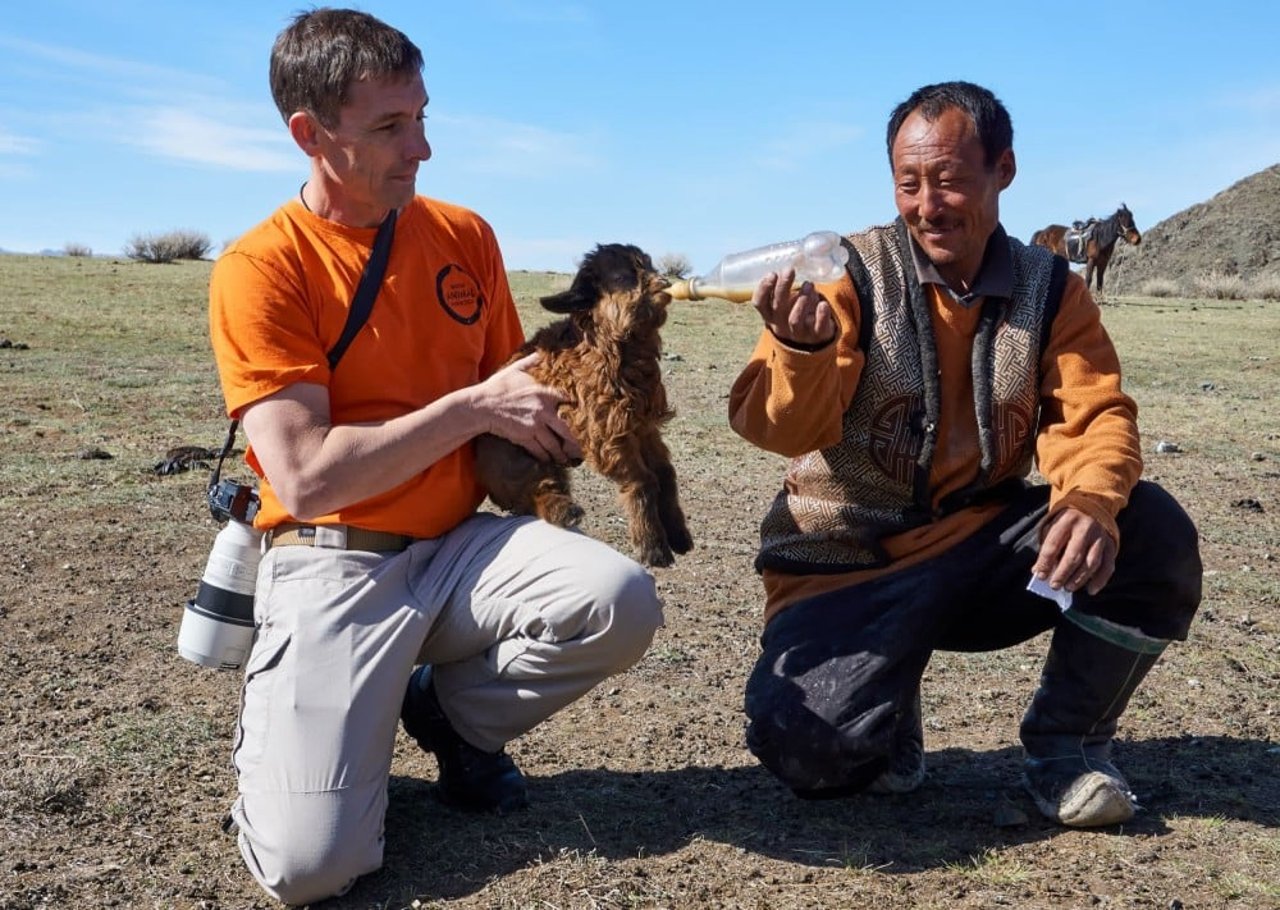
Mongolia’s Dzud: Steppes to recovery
News
Earlier this year, the vast and desolate Eastern Steppe of Mongolia experienced a natural disaster known as a “Black Dzud”; bringing with it extremely low temperatures and high winds for weeks on end. A dzud of this type occurs when a harsh winter follows a very dry summer.
With your help, we’ve partnered with the Mongolian Red Cross Society to deliver immediate relief to 1,000 herder households who are completely dependent on livestock for survival.
We’re providing emergency relief packs (mineral blocks, milk replacement powder, vitamins) to households caring for animals at highest risk – especially nursing mothers and their newborns who are the weakest and most susceptible to malnutrition and starvation. The kits aim to support the animals in the household for 3-4 weeks.
Thanks to you, 161,000 animals – primarily sheep, goats, cattle, and horses – will benefit.
Our disaster response manager, Steven Clegg (left), helping feed one of the baby goats.
The dzud – a natural disaster unique to Mongolia – is a severe winter where many farm animals die, mostly of starvation, because they can’t graze. It’s exacerbated by drought decimating crops and pastures which prevents herder households from preparing enough hay and wheat to support their livestock through winter. This means the animals can’t gain the fat stores they need to survive the harsh winter.
There are five varieties of dzud. The “black dzud” results from a lack of snow in grazing areas – which leads to both animals and humans suffering further through lack of water.
The harsh winter conditions makes it difficult for vegetation to grow, leaving many animals struggling for food.
Mongolia is now facing a third consecutive year of compounding drought and harsh winter conditions. A period of severe dry weather occurred throughout the middle of 2017 followed by an equally severe winter where temperatures were maintained near -50°C throughout late February.
50% of Mongolia subjected to -50°C temperatures
Spring storms were also severe and hit during the traditional nomadic herder migration leaving many animals freezing and struggling for food. To make matters worse, spring is the peak birthing time when all animals, particularly the young, newborns, and their mothers, are most vulnerable.
Keep following for more updates on how you're helping to protect these vulnerable animals from disaster.
With your help, we’ve partnered with the Mongolian Red Cross Society to deliver immediate relief to 1,000 herder households who are completely dependent on livestock for survival.

